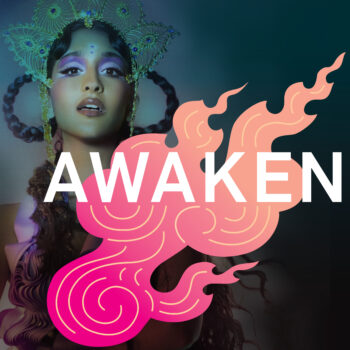
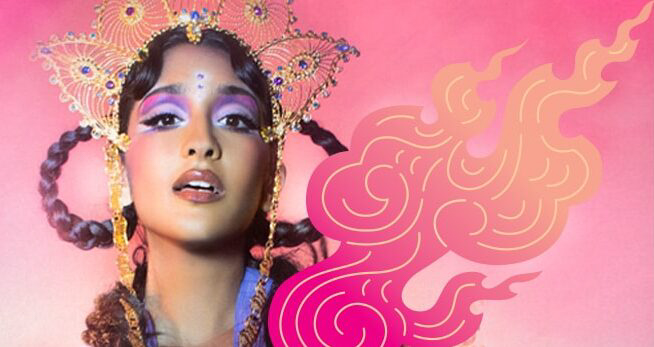
In this final episode, we return to the mandala, our visual guide on our path to awakening. We might survive without the wisdom we have gained by examining our emotions, but what is possible””for ourselves, our relationships, and our world””if we stay curious?
TRACY DENNIS-TIWARY:
I think these conversations about difficult emotions are the single most important kind of conversation we can have right now to improve our lives, and that’s because right now, we consider ourselves to be in a new age of anxiety, of emotional distress, of depression, of suicidality. Mental health is the single most prevalent medical problem, mental health disorders. 50% of us will struggle with a mental illness in our lifetime. 50%. And that number dwarfs that of any other single disease category. It dwarfs cardiovascular disease, which is the leading killer of Americans. Like that is the disease that kills the most Americans. It dwarfs cancer. It dwarfs diet, diabetes.
RAVEENA AURORA:
Neuroscientist and psychologist Tracy Dennis-Tiwary.
TRACY DENNIS-TIWARY:
And emotion is at the center of almost all of our mental health. This is the conversation we need to have.
RAVEENA AURORA:
Welcome to Season 2 of AWAKEN, a podcast from the Rubin Museum of Art that uses art to explore the dynamic path to enlightenment and what it means to “wake up.” I’m singer and songwriter Raveena Aurora, and I am on a journey of learning about the transformative power of art.
Throughout this series, we have looked at specific challenging emotions through the lens of a mandala. We have explored ways to harness the energy that challenging emotions offer for insight, for growth, for change. And, as the mandala illustrates, the only way out is through.
TRACY DENNIS-TIWARY:
The only way to manage emotions is to work through them. There’s just no other way. We’ve conveyed the standard of toxic positivity that if you aren’t always happy, you’ve failed. That until we stop having that conversation and instead have conversations about emotions as part of us, as a feature, not a bug of being human, as the secret to being happy is knowing how to feel bad sometimes and working with it, until we think of difficult emotions in that way, I think we’re doomed to keep on this track.
RAVEENA AURORA:
In this final episode, we go back to the mandala, our visual guide on our path to awakening. By now we know that it helps us face our most challenging emotions and shows us how in facing those, we can come to our greatest insights.
Ruth Ozeki is a Zen priest, professor, and author. Her most recent work is The Book of Form and Emptiness.
RUTH OZEKI:
And I was thinking about this. You know? I was thinking about how a mandala”“well, it’s a map of a journey, and a journey is something that takes place over time. It takes place over time, and it moves through space. You start a journey in one place and at one moment in time, and you travel through space, over time, to arrive at another place in time.
And what a mandala does is, it sort of compresses and almost distills space and time into a single image and a single moment.
RAVEENA AURORA:
That compression can be seen as a reflection of all that happens in a life, all the challenges and all the triumphs, the losses and gains, the things that make up a life. And it offers us a chance to step away from seeing these things as good or bad but really to see them for what they are, opportunities for insight.
RUTH OZEKI:
And that’s pretty cool, when you think about it. The idea that space and time can be compressed into a single image you know that can be looked at and apprehended in a moment. But then, of course, it’s not just that. Even though you can glance up, and look at a mandala, and see it in a flash, it really only starts to reveal itself over time again. So in order to really see a mandala, you need to really spend time with it and let the mandala unfold you know and sort of open.
RAVEENA AURORA:
When we take a moment to spend time, with an image or an emotion, we can watch it transform. And that’s the point of the mandala as well, the multifaceted nature of emotions and their inherent ability to evolve into wisdom.
Sharon Salzberg is a Buddhist teacher, author, and co-founder of the Insight Meditation Society.
SHARON SALZBERG:
I think that as you speak to scientists and researchers, you’ll hear what I hear, you know, when I talk to people like that, which is that we have common assumptions about certain states, but when they’re actually examined or investigated, they may have a very different effect, and that will make for a different world.
RUTH OZEKI:
And of course, you know, mandalas are used to sort of focus the mind, and the image of the mandala almost compels you to do that, right? It compels you to sort of move into its center.
RAVEENA AURORA:
And when you focus, you start noticing new things about yourself, about the world around you and that noticing opens up a path for growth and change.
DZOGCHEN PONLOP RINPOCHE:
Another meaning is actually the center or the core refers to the wisdom or the self-awareness, self-arising wisdom.
RAVEENA AURORA:
Dzogchen Ponlop Rinpoche is a leading Buddhist teacher and one of the foremost scholars and meditation masters in the Nyingma and Kagyu schools of Tibetan Buddhism.
DZOGCHEN PONLOP RINPOCHE:
The environment or surrounding is actually the display or many different aspects of its playful manifestation of the essence. You know extracting the essence, as you can see in each situation, in each individual journey, you know we have different meaning that we extract, or the essence that we extract in each situation and each walk of life, and each different phases of life.
RUTH OZEKI:
And I think that’s what a mandala does, too. It sort of draws you into its heart center, or you know, its core, its womb.
RAVEENA AURORA:
As the mandala represents and as Buddhist teacher and scholar Ponlop Rinpoche shares, it’s about getting back to our essential state, much like the womb, the state we were all born with.
DZOGCHEN PONLOP RINPOCHE:
This sense of how you say it’s a baby””you know, it’s like we talk about that also in the Buddhist teachings, the pure wisdom, is actually innocent awareness. It is inquisitive awareness. It is full of joy to explore.
And so, it’s like the inquisitive mind of a child. You know. When you have a child you can see you know””I can see in my daughter that when they’re young and growing and they’re full of enthusiasm, full of inquisitive mind, full of exploring mind, you know, and there seem to be no limit, and no [laughs] no limit in their energy, and no limit in their interest of things, that anything is very interesting, even something that is so kind of like””so not interesting for us [laughs], for grownups. But that actually shows that how we limit ourself from exploring things. You know? And so when we think we know something and we stop there, that is actually blocking us from further seeing things.
RAVEENA AURORA:
We often think we have to get somewhere, do something to arrive at this ability to understand our emotions but really it’s about returning to an intrinsic state that already exists within us.
When we pay attention to our thoughts and emotions without holding on too tightly to anything that comes through, we have an opportunity to get in touch with that open awareness. And we also realize how fleeting everything is. And in there is a sense of freedom because we don’t need to be immersed in our anger or be longing for our joy. It all comes, and goes, as Ruth Ozeki says, like waves.
RUTH OZEKI:
I’ve always thought that the wave metaphor is such a nice way, it’s such a clear way to understand the relationship between form and emptiness. You know you can’t separate the wave from the ocean any more than you can separate the ocean from the wave right? You know the wave is a perfect illustration of dependent co-arising or interbeing, as Thich Nhat Hanh used to call it.
And of course, too, you know an illustration of impermanence because the wave is in constant motion. And it pops its little head up and thinks, you know, “Whoa,” as you say, “look at me, you know, I’m really something. I’m a wave. I’m taller than everybody else around me.” Right? But that doesn’t last.
But everything’s like that, right? I mean everything on earth, everything that is is like that. You know trees are like that, people are like that, houses are like that. You know everything’s like that. And we’re all time beings in that regard. And so, you know, I think that one of the mistakes that we make is that we are permanent somehow right? That we have an abiding self, you know, that the self exists.
RAVEENA AURORA:
How can we begin to turn our emotions into wisdom? How can we really start to pay attention? I mean if it was that easy, everyone would do it and the world would be a better, more just place. And while it’s not actually difficult to do, it can be hard to find the tools. Psychologist Tracy Dennis-Tiwary is a professor of psychology and neuroscience at Hunter College, CUNY.
TRACY DENNIS-TIWARY:
I think acceptance is an important way to describe what we need to do. And that doesn’t mean that you just lay down and. It’s like, you have to recognize and listen to the”¦you know, there’s that beautiful acronym R.A.I.N, where R is for recognize it. You have to tune in and see and experience what it is you’re feeling. And then the A in R.A.I.N is that acceptance. And what that means is that you don’t deny it, you don’t eradicate it, hate it, consider it to be a sign of being broken or wrong or evil or any of those things. You accept it as a reality, but once you accept it you can actually start doing something with it. Right? So, it doesn’t mean that you have to just let it be. It means that then, and the next letter in R.A.I.N is investigate. You can start to understand, well, why am I having this feeling? What information is it giving me and what can I do with it? And that word investigate, to a scientist like me is really beautiful because it tells us that we should maintain an open mind and a mind of curiosity, that we can be open to what we’ll discover about this emotion. And we will, I can guarantee when we have an attitude of curiosity about our emotions, we almost always discover something we didn’t realize or weren’t ready to see before, and it’s almost always something that will make our life better. So that acceptance and investigation kind of working together, and then leading to the last stage of our stance towards emotion, which is nurturing.
TRACY DENNIS-TIWARY:
You know sometimes you want to inhibit that emotion or do something with it, or you know you don’t necessarily want to constantly feel terribly anxious. That’s a terrible feeling. So, but you’re approaching it in a way in which it’s almost like an alchemy. It’s like, emotions are energy and they need to go somewhere, so you need to transform them. And this is the whole point of the mandala lab, right? It’s this idea that we take this energy and information that we call emotion and we do something with it that furthers [01:11:30] our wellbeing, that furthers the life of others, that furthers our goals, that puts something in the world that is fulfilling a sense of purpose for us.
And that’s the magic of emotion. I mean, if we didn’t have this undercurrent of constant emotions, both positive and negative, we would do nothing in the world. I mean, there would be nothing would happen. So, there are these beautiful alchemical aspects of who we are. And the fundamental argument that I make, that emotion scientists make, that many of us would argue, is that we can own these emotions and accept them as part of our lives; and therefore, do something incredible with them and not be subject to just suffering because of them.
RAVEENA AURORA:
Ponlop Rinpoche has a similar approach.
DZOGCHEN PONLOP RINPOCHE:
When the emotions come up, I try to first recognize, observe the emotion coming, and develop this sense of a mindful gap. A genuine sense of observation creates this gap between you and your emotion so you don’t get fully overwhelmed or enveloped by this emotion, so that you don’t just identify yourself by this emotion.
So you can see the sense of there’s space between you and the emotion there. You’re observing it. I find that’s helpful, first: mindful gap. And once you have that sense of a gap between you and your emotion, then you can look at it. Then you can observe it more clearly. Then you can perhaps see some of its features, some of its raw energy, sparks here and there. And so secondly then I suggest to look at its essence, or try to observe the qualities of the emotions or the energy, you know, feel the energy, the sparks, through which you can see it clearly.
So I call this “clear seeing.” Then thirdly, letting go. And so you let go of all concepts about it, and trying to connect with the energy of the raw emotions. I use that, myself, and I suggest that to people.
RAVEENA AURORA:
Nora is ten years old and the daughter of the executive producer of this series.
NORA WOOD:
Well what I do is observe my feelings and it helps me to tell other people about them. And when I tell other people, they can either comfort me or tell me, “It’s okay to be angry right now.” And you can tell them why you’re angry. Or you’re happy and you can tell them, “I’m really really happy right now.”
TRACY DENNIS-TIWARY:
The only way to feel good and to feel well and to have wellbeing is to know how to feel those bad feelings.
RAVEENA AURORA:
Mark Epstein is an author, Buddhist, and Freudian psychiatrist.
MARK EPSTEIN:
It’s not easy. But it’s inevitable that we have to try. You know I think most of our emotional life is spent trying to rush through that. You know. Like, okay, that didn’t work, so give me the next thing. And then the more mature you get, the more you learn to sort of settle into what is, instead of what you imagine it should be. And then that becomes a lesson in life, for everything.
TRACY DENNIS-TIWARY:
The secret to feeling good is knowing how to feel [bad, which means you have to let yourself feel bad and be uncomfortable.
MARK EPSTEIN:
So I think it’s a slow and ongoing process of lowering yourself””keeping yourself in your actual experience rather than rushing to try to fill the dissatisfaction that permeates, actually permeates our life. You know. And that’s what the teachings of mindfulness””you know not clinging to the pleasant, not pushing away the unpleasant, or if there’s something slightly perverse, not clinging to the unpleasant and pushing away the pleasant. But, how do you just stay with the entire range of your experience?
TRACY DENNIS-TIWARY:
The importance and power of listening to emotions, that idea really comes from an understanding of emotions that treats them as useful information and not as a malfunction. So, if we thought of anger or anxiety as a failure of happiness, then yes. I mean, why would you ever listen to that? Why wouldn’t you just run away from it? But if instead we have the understanding that difficult emotions especially are giving us crucial information about our wellbeing, where we are in the world, what we’re facing, what’s important to us. If we fail to listen to them, we’re completely missing out on what we humans excel at, which is to listen to these aspects of ourself that aren’t all language, that aren’t all complex thinking, logic, [01:05:00] all these other capacities that we have.
MARK EPSTEIN:
We have this strange capacity as human beings be in the midst of our experience but also a little bit to the side of our experience. We can be thinking, but also know that we’re thinking. We can be angry but also know that we’re angry. We’re able to put this mental space around our experience, at the same time that we’re having it.
RAVEENA AURORA:
The more we understand the nature of our emotion, the more we can describe it. And when we share what is happening within us, we come to realize not only the complexity of the feeling but the universality of it as well. Again, Buddhist teacher, and author Sharon Salzberg.
SHARON SALZBERG:
I’ve asked people in retreat, which means I’ll see them repeatedly over a period of time, and they’re experiencing a lot of anger, I’ll say, “Okay, the next time you come to see me, tell me three things you found within the anger, and one of them can be change itself.” You know. It’s like we take an interest in our experience, and that’s the key. But then we lose it again, you know? We get overwhelmed by the story. But then we can start over. It’s like, “Okay, what am I feeling right now? What do I feel in my body?” That starting over is not a sign of failure or not doing it right; that’s what we all have to do.
RAVEENA AURORA:
As we have learned on this journey, the process of being aware of our emotions, allows us to appreciate their malleability, their dynamic nature. And when we do this, we can start to move away from judging the emotions and more towards understanding them as ever evolving sensations that give us useful information, and even epiphanies. Tracy Dennis Tiwary.
TRACY DENNIS-TIWARY:
Over the past ten or fifteen years, we started shifting towards really appreciating that emotional health is more about flexibility than the types of emotions you have. It’s more about our ability to know when and how to use emotions, and to use them in ways that are helpful to self and others. That really is the sign of emotional health. So, we can break out of this sort of binary of good and bad emotions or positive and negative emotions.
I think the mandala lab is all about flexibility because it’s about transformation. Transformation is an energy term, right? It’s about taking an energy you know that then”¦I mean, you can think about it almost like an electrical transformation, that electricity has to go through transformers so that all the noise that gets into a signal can be buffered against.
DZOGCHEN PONLOP RINPOCHE:
Looking at these emotions from their energy point of view is the contemplative way of looking at the emotions, you know.
TRACY DENNIS-TIWARY:
So, what do you do with that? How do you transform that experience? Well, if you transform it in a rigid way that has no nuance or that can’t respond to what’s happening in the world and to what you’re feeling inside, if there’s no give and take, that emotion is going to be an energy that is unchanneled, that is potentially destructive.
So, I think the notion of flexibility is fundamental to understanding how emotions can be helpful rather than destructive, can be used rather than be a burden on us.
SHARON SALZBERG:
If you’re exhausted all the time and you’re trying to supervise somebody at work or mentor somebody, it’s like you don’t have it. You just don’t. Let alone if you’re in a caregiving relationship with a family member or professionally, or you’re an activist trying to really make for more systemic change. And so if we really look at what allows us to deepen energy and clarity and perspective and ability to hang in there through difficult circumstance, those are the qualities we need, and then they have a very real effect on the world.
TRACY DENNIS-TIWARY:
And this is the whole point of the mandala lab, right? It’s this idea that we take this energy and information that we call emotion and we do something with it that furthers our wellbeing, that furthers the life of others, that furthers our goals, that puts something in the world that is fulfilling a sense of purpose for us.
MATTHIEU RICARD:
So you can become a better person.
RAVEENA AURORA:
Writer, photographer, translator and Buddhist monk, Matthieu Ricard.
MATTHIEU RICARD:
We have a lot of habitual tendencies of self-centeredness, and we realize that, then we try to repair that and improve.
And “Oh yes, sorry, I was not attentive enough” or “What I said is not so skillful, it’s not so nice, not so kind.” So then you learn from that and you try to improve slowly, step by step, thought by thought, emotion after emotion, and change your way of being.
TRACY DENNIS-TIWARY:
And that’s the magic of emotion. I mean, if we didn’t have this undercurrent of constant emotions, both positive and negative, we would do nothing in the world. I mean, there would be nothing would happen. So, there are these beautiful alchemical aspects of who we are. And the fundamental argument that I make, that emotion scientists make, that many of us would argue, is that we can own these emotions and accept them as part of our lives; and therefore, do something incredible with them and not be subject to just suffering because of them.
RAVEENA AURORA:
Activist and author adrienne maree brown wrote a groundbreaking book called Emergent Strategy and she has thought a lot about change and our individual ability to have a real effect on the world.
ADRIENNE MAREE BROWN:
One of my mentors, Grace Lee Boggs, used to talk about this as, “Are we willing to actually take responsibility for our lives, for our communities, for our transformations?”
The responsibility that we actually have by receiving the gift of life. And I’m really curious about what happens with that. Can we make it more delicious and exciting for people to be in shared responsibility for their lives, and their communities, and their families? Or do we relinquish that territory to those who benefit from us not asking questions, and not taking responsibility? Like we need to learn how to co-exist on this planet together. In our human existence, we have really not figured out how to be with each other. This is the time to figure this out. And it’s hard to figure it out if we can’t acknowledge that we don’t actually know how we can do it.
And it seems to help both and be able to manage like how do I share space, and time, and thought partnership with other people? Like, “Oh, I need to be able to be responsible for my own emotions, my own reactions, my own feelings about stuff.” That makes a huge difference in being able to belong and be part of a group because I’m not just flying off the handle. You know I’m like, “Oh, I feel angry. I feel sad. I feel despair, I feel displaced.” Like, being able to feel and coherently communicate that stuff, I’m like, “I’m pretty sure that that’s a part of what we need to figure out and learn together.”
RAVEENA AURORA:
There are many ways to learn from our emotions, and it may look different for every individual. But according to everyone we have heard from, our ability to wake up our inner world is available to all of us. Sharon Salzberg.
SHARON SALZBERG:
“Be mindful” because mindfulness implies that you’re curious and that you’re kind to yourself. You’re not hating yourself for what you’re feeling. You’re not adding to what’s coming up like, “I’m going to be angry for the rest of my life.” You’re not adding isolation, you know like “I’m the only one who ever feels this.” Or whatever it might be.
TRACY DENNIS-TIWARY:
So, the implications for us as a society to have these conversations is that we can start healing ourselves.
MATTHIEU RICARD:
If you think of one trait that should be selected by evolution to survive, it’s certainly cooperation and consideration of others, rather than reckless selfishness.
TRACY DENNIS-TIWARY:
And I think there’s a zeitgeist now. I think we’re starting to have these conversations that I think will change everything.
SHARON SALZBERG:
There are certain states like gratitude, like loving kindness, like cooperation, that when we actually practice them, they lift us, they give us perspective, they open up our world, they allow for options we might not have seen before, and it’s a better way to live, and then we have a different effect.
Because I feel like the systems of this nation state, the system of this economy, actually the tendency is toward that competition and cruelty that keep us from attending to each other as human beings, as systems where care is actually the only thing we need to be attending to.
TRACY DENNIS-TIWARY:
I think the world I want to see when it comes to how we talk about emotions is one in which people believe that having difficult emotions is a sign of strength instead of weakness, that it’s a sign that we’re engaging in the work of being human and not a malfunction or failure. And I think the world I hope that we live in is also one in which we understand that emotional safe spaces aren’t spaces where there’s no disagreement or difficult ideas but are spaces where we can all agree to have difficult conversations that empowers everyone to be a part of that conversation and doesn’t shut down conversations because it makes us uncomfortable. It’s hard to know where that line is, and you know everyone does need to have a seat at the table and a voice, but I think we have to, in the world I want to see, I’d like to see a world in which difficult emotions, difficult conversations are part of what we empower each other to have.
RAVEENA AURORA:
The path to transformation is winding and interconnected. Like our mandala with its quadrants that represent emotions and wisdoms, and bound by a circle that contains its own universe. We too contain multitudes.
Each klesha or difficult emotion we encountered throughout this series””anger, pride, attachment, envy, and ignorance””provides us with a unique opportunity to evaluate our emotions and learn a companion wisdom: Anger reveals crystal-clear focus, pride becomes balance, attachment releases into an openness and a letting go of bias, envy turns to collaborative action, and ignorance becomes pure awareness. And when those wisdoms are woven together, we unlock our fullest potential. I’ve learned that our most difficult and unruly emotions are our most powerful teachers.
Emotions can reveal clarity I didn’t know was possible to achieve: Each emotion, each wisdom is vital. We might survive without this wisdom, but with it, aren’t you curious? Imagine the world that is possible.
Thank you for listening to Season 2 of AWAKEN, a podcast from the Rubin Museum that explores the dynamic path to enlightenment and what it means to “wake up.” I’m singer and songwriter Raveena Aurora.
You just heard professor, author and Zen priest Ruth Ozeki, psychologist and neuroscientist Tracy Dennis-Tiwary, Buddhist teacher and author Sharon Salzberg, Buddhist teacher and psychotherapist Mark Epstein, Buddhist teacher and scholar Dzogchen Ponlop Rinpoche, activist and author adrienne maree brown, author and Buddhist monk Matthieu Ricard, and 10-year-old Nora Wood.
AWAKEN is produced by the Rubin Museum of Art with Dawn Eshelman, Tenzin Gelek, Jamie Lawyer, and Christina Watson in collaboration with SOUND MADE PUBLIC including Tania Ketenjian, Emma Vecchione, Philip Wood and Jeremiah Moore.
Music produced by Alexis Cuadrado and Hannis Brown with some additional tracks from Blue Dot sessions.
AWAKEN Season 2 is part of the Rubin Museum’s Mandala Lab multiyear initiative generously supported by 28 donors and sponsors. Lead support is provided by the Milton and Sally Avery Arts Foundation, Barbara Bowman, The Pierre and Tana Matisse Foundation, Rasika and Girish Reddy, Shelley and Donald Rubin, and the Tiger Baron Foundation.
Public funding is provided by the New York City Department of Cultural Affairs in partnership with the City Council, and the New York State Council on the Arts with the support of the Office of the Governor and the New York State Legislature.
You can continue the conversation by following us on Instagram at @rubinmuseum. And if you’re enjoying this podcast, leave us a review wherever you listen to podcasts, and tell your friends about the conversation you just heard.
This is episode 7 of a 7 part series inspired by the Mandala Lab at the Rubin Museum””an immersive space for social, emotional, and ethical learning. Come explore the Lab in New York City, or in one of the installations that is traveling the world. Visit rubinmuseum.org to learn more about the Museum and about the art, cultures, and ideas of Himalayan regions. We look forward to seeing you soon. Thanks for listening.
AWAKEN Season 2 is hosted by singer and songwriter Raveena Aurora. Guests featured in this episode include psychologist and neuroscientist Tracy Dennis-Tiwary, Buddhist teacher and psychotherapist Mark Epstein, artist and activist Madame Gandhi, Zen priest and author Ruth Ozeki, author and Buddhist monk Matthieu Ricard, Buddhist teacher and scholar Dzogchen Ponlop Rinpoche, Buddhist teacher and author Sharon Salzberg, and student Nora Wood. Read more about these guests below.
View the Vairochana Mandala which inspired this season of AWAKEN and the Rubin’s Mandala Lab below.
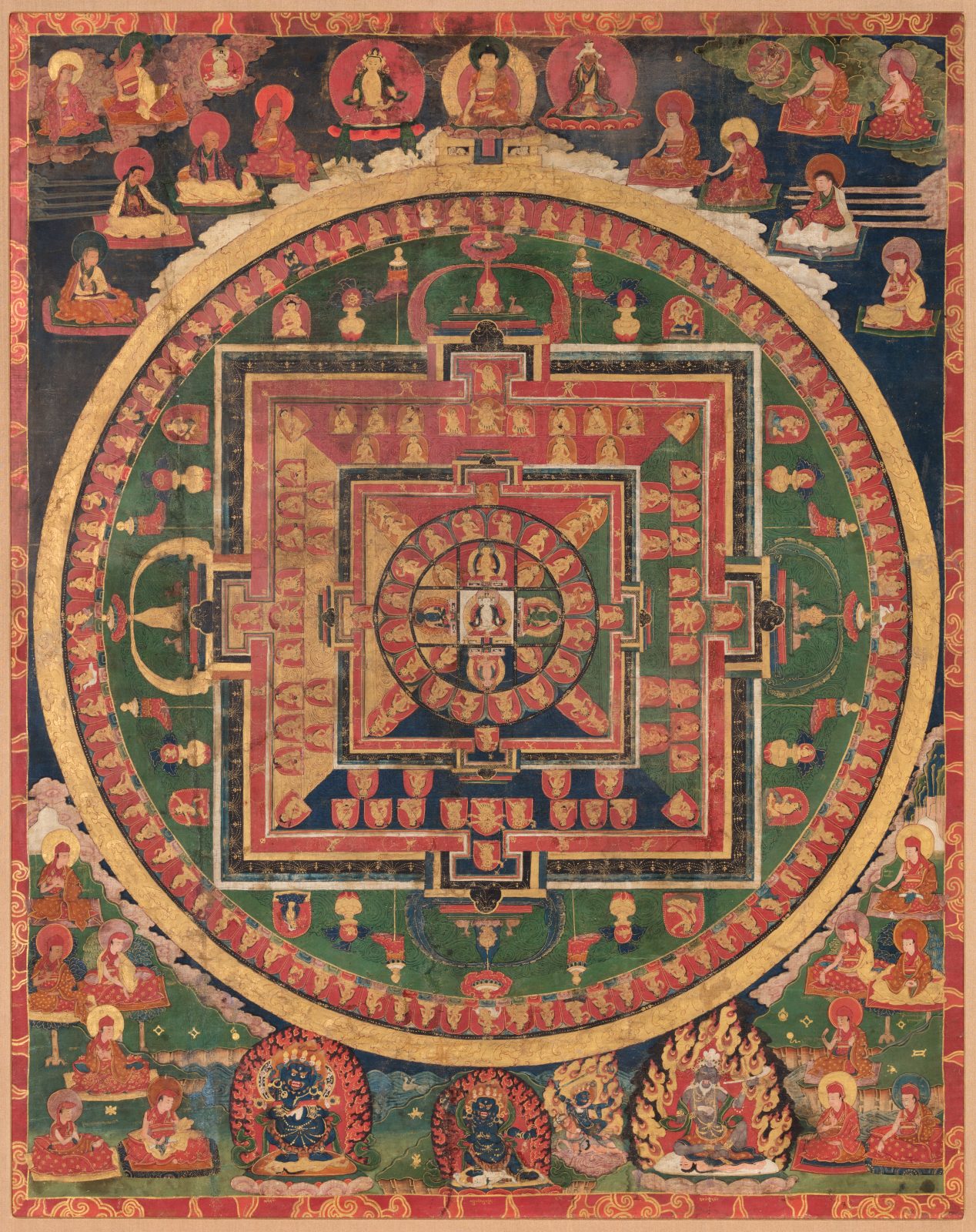
Sarvavid Vairochana Mandala; Tibet; 17th century; Pigments on cloth; Rubin Museum of Himalayan Art, Gift of Shelley and Donald Rubin; C2006.66.346
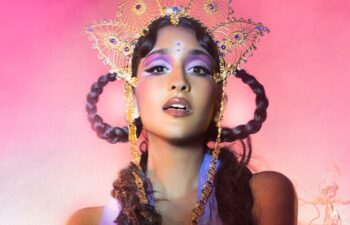
For Raveena, music is meant to be a “complete expression of the self.” It’s a truth she’s leaned on through a whirlwind couple of years, which saw a potent flurry of output and a pointed ascent into the conversation with her critically acclaimed 2019 debut full-length, Lucid, and 2020 follow-up, Moonstone EP. Asha’s Awakening takes listeners on an epic deep dive into Indian culture. An homage to her heritage as a first-generation descendant of genocide survivors and Reiki healers, the album incorporates influences from Bollywood and celebrated Indian artists like R.D. Burman and Asha Bhosle, as well as Western music—specifically R&B, rock, and soul—and melds the genres prevalent throughout Raveena’s catalog into one cohesive body of work. The album also marries eras in time, fusing together a contemporary take on sounds influenced by Alice Coltrane and Asha Puthli from the 60s and 70s with those of Timbaland, Missy Elliott, M.I.A., and Jai Paul from the early 2000s. It is a labor of love that represents her evolution as an artist. Raveena remarks, “I think it’s really fun putting people in uncomfortable positions to receive new sides of you. The human experience is so vast.”
Inspired by artists like Sade, Corinne Bailey Rae, Minnie Riperton, and Indian singer Asha Puthli, Raveena is a highly creative, dynamic, and spiritual artist who aims to build fully realized worlds within each of her projects: conceptual experimentations in sound, threaded together by stories of healing and self-realization meant to be experienced from start to finish.
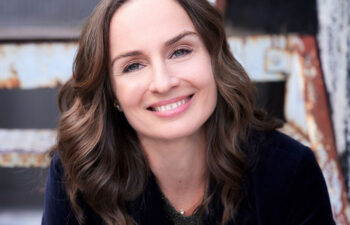
Tracy A. Dennis-Tiwary, PhD, is a professor of psychology and neuroscience at The City University of New York. As director of the Emotion Regulation Lab, she conducts NIH-funded research on anxiety, suicide, and digital therapeutics for stress and anxiety. She is the cofounder of Arcade Therapeutics, which translates cutting-edge science into digital tools for behavioral health, and co-executive director of the Center for Health Technology at Hunter College. She is the author of Future Tense: Making Anxiety Our Superpower.

Madame Gandhi is an award-winning artist and activist known for her uplifting, percussive electronic music and positive message about gender liberation and personal power. She began producing music in 2015, after her story running the London Marathon free-bleeding to combat menstrual stigma went viral around the world. She has been listed as Forbes 30 Under 30 in Music, and her 2020 TED Talk about conscious music consumption has been viewed over a million times. Waiting For Me, shot in Mumbai, India, won the Music Video Jury Award at SXSW Film Festival in 2021, and her 100% Organically Sourced x Sound MANA nature sound pack won the New.Wav award at the 2021 Splice Awards. Her third studio album, Vibrations, is slated for release in 2022, following the release of her previous albums Voices (2016) and Visions (2019). Gandhi completed a Masters in Music Science & Technology at Stanford University’s CCRMA where she spent time in Antarctica sampling the sounds of glaciers melting to create empathy and awareness around climate change.
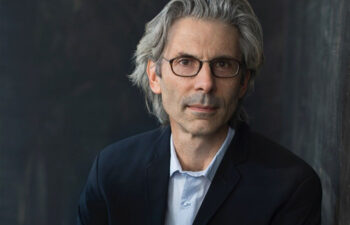
A highly-regarded psychiatrist in private practice in New York City, Mark Epstein, MD, is the author of a number of books about the interface of Buddhism and psychotherapy, including Thoughts without a Thinker, Going to Pieces without Falling Apart, Going on Being, Open to Desire and Psychotherapy without the Self. The Trauma of Everyday Life uses the Buddha’s biography as a means of exploring the hidden psychodynamics, and contemporary relevance, of Buddhist thought. He received his undergraduate and medical degrees from Harvard University and is currently a clinical assistant professor in the postdoctoral program in psychotherapy and psychoanalysis at New York University.
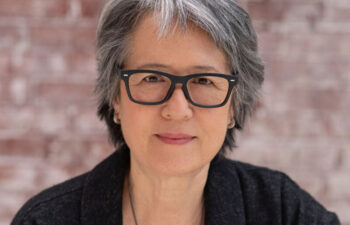
Ruth Ozeki is a novelist, filmmaker, and Zen Buddhist priest, whose books have garnered international acclaim for their ability to integrate issues of science, technology, religion, environmental politics, and global pop culture into unique, hybrid, narrative forms. Her new novel, The Book of Form and Emptiness, published by Viking in September 2021, tells the story of a young boy who, after the death of his father, starts to hear voices and finds solace in the companionship of his very own book. The Book of Form and Emptiness has been shortlisted for the UK Women’s Prize for Fiction. Her first two novels, My Year of Meats (1998) and All Over Creation(2003), have been translated into 11 languages and published in 14 countries. Her third novel, A Tale for the Time Being (2013), won the L.A. Times Book Prize, was shortlisted for the Man Booker Prize and the National Book Critics Circle Award, and has been published in over 30 countries. Her work of personal non-fiction, The Face: A Time Code (2016), was published by Restless Books as part of their groundbreaking series called The Face. Ruth’s documentary and dramatic independent films, including Halving the Bones, have been shown on PBS, at the Sundance Film Festival, and at colleges and universities across the country. A longtime Buddhist practitioner, Ruth was ordained in 2010 and is affiliated with the Brooklyn Zen Center and the Everyday Zen Foundation. She splits her time between Western Massachusetts, New York City, and British Columbia, Canada. She currently teaches creative writing at Smith College, where she is the Grace Jarcho Ross 1933 Professor of Humanities in the Department of English Language and Literature.
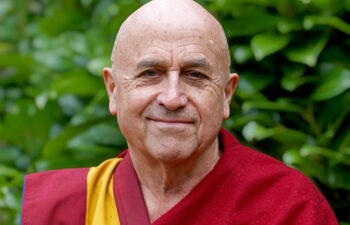
Matthieu Ricard is a PhD in cell genetics who became a Buddhist monk and has studied Buddhism in the Himalayas for the last 50 years. He is a humanitarian, an author, and a photographer. His books include Altruism: The Power of Compassion to Change Yourself and the World. He devotes all the proceeds of his activities to humanitarian projects in Asia, through Karuna-Shechen, the organization he co-founded, which benefits over 450,000 people every year.
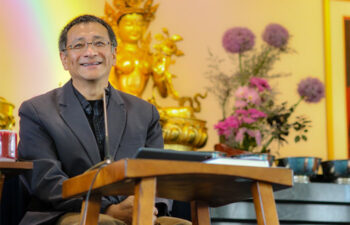
Dzogchen Ponlop Rinpoche is a widely celebrated Buddhist teacher and the author of Emotional Rescue, Rebel Buddha, and other books. A lover of music, art and urban culture, Rinpoche is a poet, photographer, accomplished calligrapher and visual artist, as well as a prolific author. Rinpoche is the founder, president, and spiritual director of Nalandabodhi, an international community of Buddhist centers. Rinpoche is acknowledged as one of the foremost scholars and meditation masters of his generation in the Nyingma and Kagyu schools of Tibetan Buddhism. He is known for his sharp intellect, humor, and easygoing teaching style, for launching the kindness initiative #GoKind and for his outreach to communities internationally.
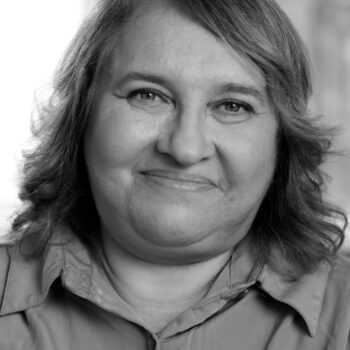
Sharon Salzberg, Cofounder of the Insight Meditation Society in Barre, Massachusetts, has guided meditation retreats worldwide since 1974. Her latest books are Real Life: The Journey from Isolation to Openness and Freedom and Finding Your Way: Meditations, Thoughts, and Wisdom for Living an Authentic Life. She is a weekly columnist for On Being, a regular contributor to the Huffington Post, and the author of several other books, including the New York Times bestseller Real Happiness: The Power of Meditation, Real Change: Mindfulness to Heal Ourselves and the World, Faith: Trusting Your Own Deepest Experience, and Lovingkindness: The Revolutionary Art of Happiness. Ms. Salzberg has been a regular participant in the Rubin’s many on-stage conversations and regards the Rubin as a supplemental office.

Nora is a ten-year-old student and the daughter of the producer of AWAKEN.
Get the latest news and stories from the Rubin, plus occasional information on how to support our work.